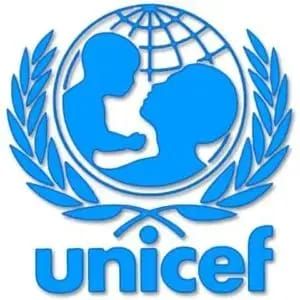The United Nations Children’s Fund (UNICEF) and the World Health Organization (WHO) have expressed concern over funding cuts to global health, revealing that over 15 million vulnerable children are unable to receive vaccinations.
Outbreaks of vaccine-preventable diseases are increasing worldwide, putting lives at risk and exposing countries to higher costs in treating diseases and responding to outbreaks, which further jeopardize health systems.
Olusoji Akinleye, Health Specialist at UNICEF’s Field Office in Enugu, raised these concerns while presenting a paper at the two-day Media Dialogue on 2025 World Immunization Week, themed: ‘Immunization for All is Humanly Possible.’ The event, held in 12 states (Abia, Akwa Ibom, Anambra, Bayelsa, Cross River, Benue, Ebonyi, Enugu, Rivers, Delta, Imo, and Kogi), took place at Hotel Fidelma, Enugu, on Thursday, April 24, 2025. It was organized by UNICEF Enugu Field Office in collaboration with the Broadcasting Corporation of Abia State (BCA).
Akinleye, presenting a paper titled “‘Immunization for All is Humanly Possible’ – Availability,” said the health sector is facing numerous challenges. “I would like to highlight the shrinking funding for immunization and the entire health sector,” he said.
“There is a global funding cut that worsens the situation. A recent WHO report shows that nearly half of countries are facing severe setbacks in vaccination campaigns due to funding cuts, which also affect access to vaccine supplies due to reduced funding in dollars.”
Akinleye pointed out that the number of children missing routine immunizations has increased in recent years. “During the COVID-19 pandemic (2019–2022), laboratories producing vaccines had to focus on developing the COVID-19 vaccine, leading to vaccine scarcity. During this period, vaccine hesitancy grew, and routine immunization coverage dropped,” he said.
He noted that, in 2023, an estimated 40.5 million children missed all their routine vaccine doses, up from 13.9 million in 2022 and 4.9 million in 2019.
“This increase in the population of children who missed immunization is concerning. Over half of these children live in conflict-affected countries, where access to basic health services is disrupted. Nigeria is one of those countries.”
Quoting UNICEF’s Executive Director, Catherine Russell, Akinleye said, “The global funding crisis is severely limiting our ability to vaccinate about 15 million vulnerable children in fragile countries against measles. Immunization services and disease surveillance in nearly 50 countries have already been disrupted.”
He further explained that joint efforts by UNICEF and partners have helped some countries address these challenges, noting that, “Every year, vaccines save over 14.2 million lives, with nearly half of those lives saved in the African region.”
In response to these challenges, Akinleye called for urgent and sustained political efforts and investment to strengthen immunization programs and protect the progress made in reducing child mortality over the past 50 years.
“Vaccines have saved over 150 million lives in the last five decades. Countries with limited resources must invest in the highest-impact interventions, including vaccines,” he added, quoting the WHO Director-General.
Akinleye also highlighted other challenges in the health system, such as economic difficulties, workforce shortages, and insecurity.
“When the economy is bad, every sector, including health, suffers,” he said. “Funding hardly reaches the required level, and many skilled health professionals are emigrating due to poor remuneration. In addition, insecurity in regions like the South East has led to the closure of health facilities, leaving many unable to access care.”
He emphasized that governments must invest in strengthening immunization systems, while UNICEF ensures vaccine availability at all levels, from national to local service delivery points.
Juliet Chiluwe, UNICEF’s Chief Field Officer, officially opened the media dialogue, reaffirming UNICEF’s commitment to ensuring good health services for women and children.
She commended state governments for their support and reiterated that UNICEF would continue to provide funds, logistics, and other resources to enhance these services.
Ijeoma Onuoha Ogwe, Communications Officer for UNICEF’s Enugu Field Office, explained that the media’s role in the dialogue was to share information and form partnerships in the fight against vaccine-preventable diseases.
“The media will step up advocacy for the realization of the right to survival, development, and protection from harm for every child,” she said.
Ifeyinwa Anyanyo, another UNICEF Health Specialist, spoke on “Immunization for All is Humanly Possible – Accessibility.”
She highlighted how UNICEF is overcoming challenges in difficult terrains by providing logistical support and using innovative methods, such as drones, to reach remote areas.















